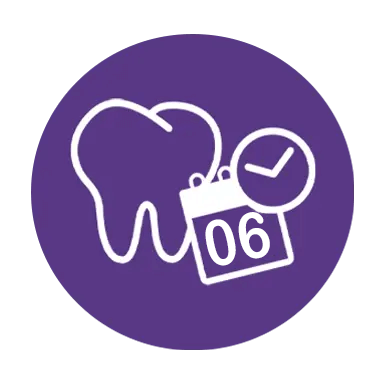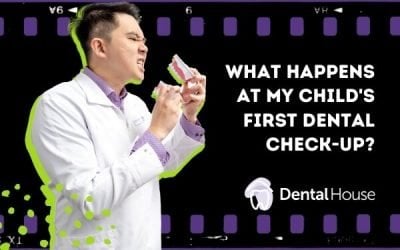Sleep Dentistry
Sleep Dentistry at Sunbury, Gisborne & Diggers Rest
What is Sleep Dentistry?
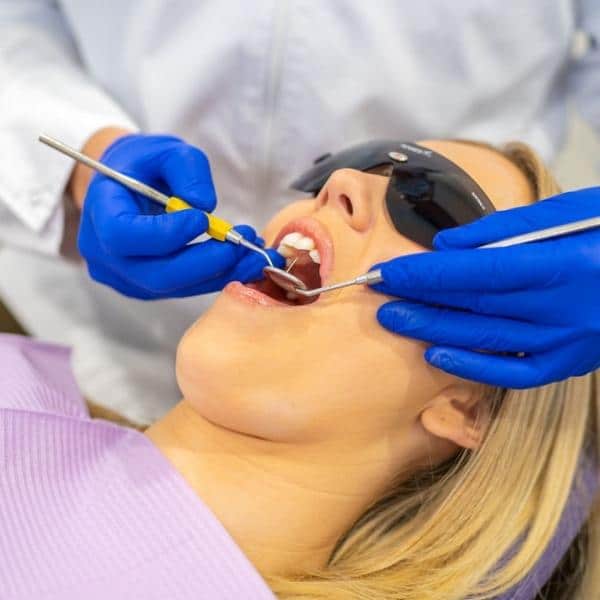
Sleep dentistry is a term used for when the dentist administers medication either before or during a dental procedure to help the patient relax. Fortunately, we live in a time when modern medications are safer than ever and we can tailor them to suit the needs of the individual patient. The method of administration is personalised so that you receive the level of sedation you need for a comfortable and stress-free experience.
What is Sleep Dentistry?
Sleep dentistry is a term used for when the dentist administers medication either before or during a dental procedure to help the patient relax. Fortunately, we live in a time when modern medications are safer than ever and we can tailor them to suit the needs of the individual patient. The method of administration is personalised so that you receive the level of sedation you need for a comfortable and stress-free experience.


Sleep dentistry, on the other hand, is when the patient is put to sleep under general anesthesia. This is reserved for longer or more complicated procedures or for those who have extreme anxiety.
Even though it can be helpful with most procedures, sleep dentistry is not for every situation. For example, it is not used for certain cosmetic procedures if the dentist needs to communicate with the patient or may not be appropriate for those with sleep apnea. But no worries, our experienced dentists will do a full evaluation to determine if it is right for you.
Sedation Dentistry vs Sleep Dentistry
Although they sound the same, sedation dentistry and sleep dentistry are slightly different.
Sedation dentistry refers to the administration of medications that cause deep relaxation and drowsiness. The patient will feel relaxed, but will not go to sleep. Even though awake during the entire procedure, patients often don’t remember it, which helps alleviate anxiety they might normally experience.

Sedation Dentistry vs Sleep Dentistry

Although they sound the same, sedation dentistry and sleep dentistry are slightly different.
Sedation dentistry refers to the administration of medications that cause deep relaxation and drowsiness. The patient will feel relaxed, but will not go to sleep. Even though awake during the entire procedure, patients often don’t remember it, which helps alleviate anxiety they might normally experience.

Sleep dentistry, on the other hand, is when the patient is put to sleep under general anesthesia. This is reserved for longer or more complicated procedures or for those who have extreme anxiety.
Even though it can be helpful with most procedures, sleep dentistry is not for every situation. For example, it is not used for certain cosmetic procedures if the dentist needs to communicate with the patient or may not be appropriate for those with sleep apnea. But no worries, our experienced dentists will do a full evaluation to determine if it is right for you.
How is it Done?
There are different methods used to induce sleep dentistry. For example, if you require oral medications, you may be given a prescription ahead of time and instructed to take it about an hour before your appointment. Your dentist will discuss any other medications you take along with allergies to determine which medication is best for you. Nitrous oxide is a lighter level of sedation that is given during the procedure, and effects wear off quickly afterwards. General anesthesia is used for sleep, and instructions may be given to arrange transportation after your appointment, since the effects may linger.
Types of Sleep Dentistry
There are numerous medications that can be used, and each result in a different type of sedation.
Oral Medications
are given as liquids or pills, such as lorazepam. These are given before the procedure, so the patient is in a state of deep relaxation when it begins.
Nitrous Oxide
or laughing gas, is added to oxygen and administered through a breathing mask to help the patient remain relaxed and comfortable during the dental procedure.
IV Sedation & General Anesthesia
For those who are really phobic and cannot be treated under normal circumstances, or if the surgery is very involved, IV sedation or General Anesthesia can be performed either in the clinic or in the hospital with the help of a professional sedationist or anaesthetist.
Our Happy Patient
Benefits of Sleep Dentistry
Sedation and sleep dentistry are beneficial for anyone who has an extreme fear of having dental procedures. We may also recommend sleep dentistry for those who require extensive dental work. This allows us to do a lot of work in less time, saving the patient time and money as they don’t have to make multiple visits. But the benefits of sleep dentistry are different for each individual. If you recognize that any of the following pertains to you or your family, discuss your options with your dentist:
Is Sleep Dentistry Right for Children?
While usually not necessary, sleep dentistry can be safe and beneficial for some children. We believe that early positive experiences lead to a lifetime of good oral health, and sometimes sedation may be the right option. With many levels of sedation to choose from, we can tailor medications that are appropriate and safe for the child’s age and size.
Nitrous Oxide
Mild or Moderate Sedation
is accomplished with the use of Intravenous sedation in the presence of a professional sedationist if the child requires a lot of work and wants everything done at once.
General Anaesthetic
In some cases children may require to be administered to a local hospital for general anaesthetic.
Preparation Before and After
An exam and evaluation will be done before your dental procedure, so you are fully aware of the work we will perform. If you require sedation or sleep dentistry, your dental professional will explain what is available and then outline the best options for you, and help you prepare for your visit. Some ways you might prepare are as follows:
A mild sedative such as laughing gas or a mild oral sedative may require no advance preparation, or your dentist may ask you to not drink an hour before your appointment.
An oral sedative may require a prescription before the appointment so you can take it ahead of time.
Stronger sedatives, like those used in IV or general anesthesia, may require you to schedule a future appointment and fast with no food or drink up to 12 hours prior. You will have to wear loose clothing on the day and no jewelry or makeup is allowed. Arranging for a ride home is also essential in most of these cases.
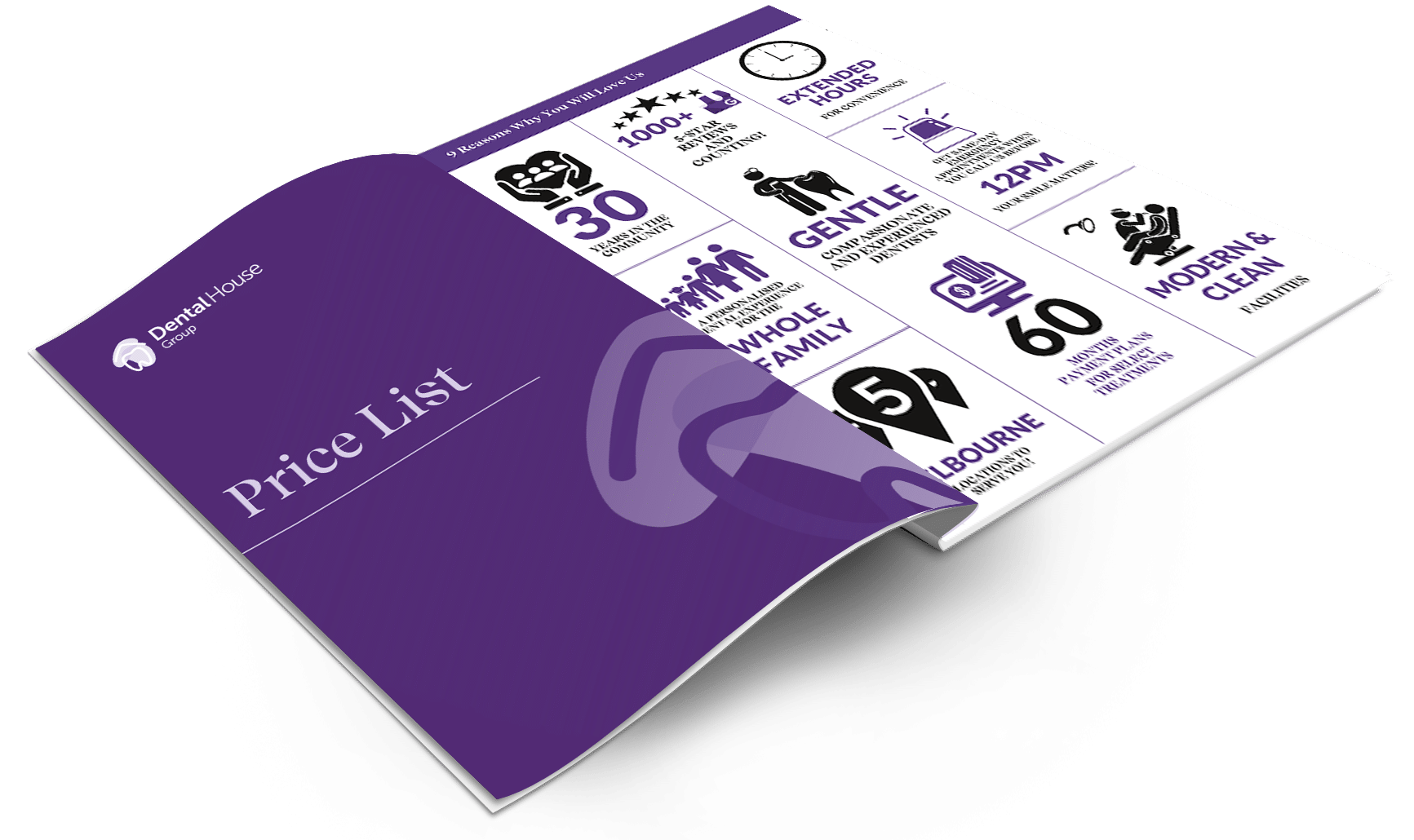
Download Price List
While we agree that you can’t put a price on good health (especially when it comes to your teeth), we understand the reality of family budgets. That’s why we offer flexible treatment options and family-affordable pricing. You might say the only thing average about Dental House is our prices.
Our Happy Patient
Sleep Dentistry Blogs
What Happens At My Child’s First Dental Check-Up
Yesterday, I was with one of our new patients, Amelia from Sunbury, for her check-up and clean. She has a young child, and she asked me…
What Happens To Impacted Wisdom Teeth When Left Untreated?
I just saw a new patient Maria from Gisborne yesterday. She came to us because she has an impacted wisdom tooth, and it was causing…
What Is The Cost Of Sleep Dentistry?
Sleep Dentistry Price here in Sunbury can range anywhere from $500 to $800 an hour, depending on several factors. Watch this video, as Dr Lyle explains. WATCH NOW!

Make an Appointment Today
If you put off dental procedures due to fear of needles, pain or anxiety, sleep dentistry may be an option for you. We strive to make sure your visit is as comfortable and stress-free as possible, and will work with you to ensure you have a positive experience. We know that good dental habits maintain good oral health, and can set you up for a beautiful smile that will last a lifetime.
Call today for an appointment, especially if you worry about dental work. Our team here at the Dental House is dedicated to helping you overcome your fears and making your appointment a positive experience. And we ensure that when you visit, you and your family are in good hands. Fill in the enquiry form below and one of our friendly team members will be in touch to organise a consultation for you.
Disclaimer: The material posted is for informational purposes only and is not intended to substitute for professional medical advice, diagnosis or treatment. Results vary with each patient. Any dental procedure carries risks and benefits. If you have any specific questions about any dental and/or medical matter, you should consult your dentist, physician or other professional healthcare providers.
Your Dental House Journey

Your Dental House Journey

Examination and Treatment Planning

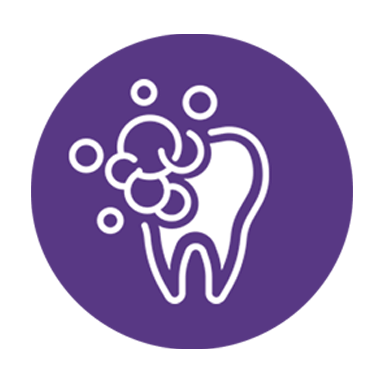
Hygiene Department

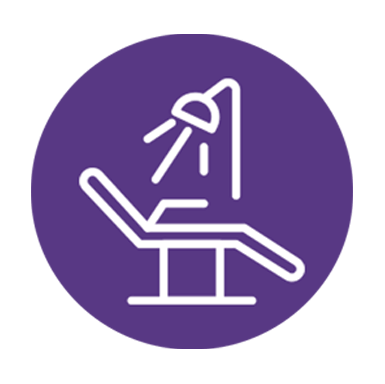
Clinical Treatment

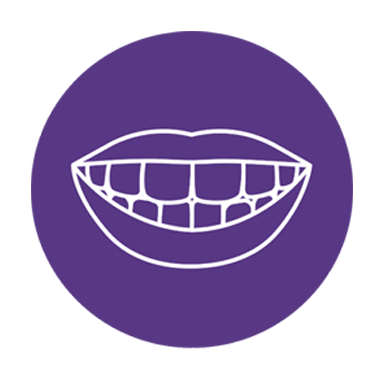
Functional Restorative

